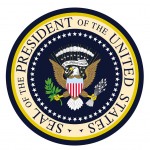Guaranteeing Kim Jong-un’s Safety
Posted on May 30, 2018 by Robert Ringer
One of the most poorly thought-out comments President Trump has made to date is when he guaranteed Kim Jong-un’s safety if a peace settlement is reached. Good intentions, no doubt, but the reality is that it’s a guarantee he can’t make good on. Here’s why:
Let’s take a best-case scenario and assume a deal is struck that calls for the complete denuclearization of North Korea, including the unfettered right of the United States and South Korea to inspect. Let’s further assume that U.S. companies — along with those in other advanced nations — would invest in North Korea, just as they have done in such former enemy states as Cambodia, Laos, and Vietnam.
This would almost certainly bring about a level of prosperity to North Korea heretofore unimagined. North Koreans would still be poor by South Korean or U.S. standards, but not destitute. That’s an important distinction, because people who are impoverished and starving think only of day-to-day survival, not revolution. But the “newly poor” — those who are poor but don’t have to worry about starvation — have the luxury of being able to think about overthrowing their perceived oppressors.
Which raises the peace-settlement question that no one is addressing: In the event there actually is a settlement, what happens to the 25 million people in North Korea who are virtual slaves — slaves suffering from malnutrition and disease? I’m talking about those who live in fear of being put in concentration camps for uttering the slightest comment that can be interpreted as subversive by Kim Jong-un’s enforcers. How does Kim keep them from revolting?
It goes without saying that even if a settlement is reached, North Korea still will not hold free elections and Internet access will be tightly controlled. In other words, except for starvation, things will pretty much continue on as they have been for the past 65 years. It’s the only way Kim Jong-un can hope to stay in power.
Which raises another question: Following a peace settlement, would North Koreans be allowed to visit South Korea? If so, can you can imagine what their reaction would be when they saw, firsthand, that South Koreans are living lives of unfathomable luxury? And what happens when many North Koreans refuse to leave South Korea?
Likewise, what would happen when South Koreans visit North Korea? Wouldn’t they be horrified by the poverty and suffering they witnessed? Worse, North Koreans would tell them about the brutal oppression of the Kim regime.
It wouldn’t be long before protests erupted in North Korea and the ruling elites would have no choice but to employ brute force to silence the protestors. In such an environment, would the United States continue to protect a brutal dictator? On the other side of the coin, if the U.S. threatened Kim Jong-un, it would almost certainly bring retaliatory threats from North Korea about restarting its nuclear program if the United States interferes.
Thus, sooner or later the United States would have to make a choice: Turn a blind eye to Kim Jong-un’s repressive tactics or give him a one-way trip to visit Muammar Gaddafi.
Of course, it’s always possible, though highly unlikely, that Kim could become a benevolent dictator, but that would be a life-ending mistake on his part. North Koreans are not going to forget their suffering under his regime, and it would only be a matter of time until they rose up and overthrew him. I don’t believe Kim is naïve enough to allow this to happen.
The bottom line is that unless Kim Jong-un is removed from power and a democratic government installed, oppression of North Koreans would have to continue after a settlement is in place. If the United States attempted to use force to remove Kim from power, the unintended consequences could be catastrophic.
The real solution to the North Korea problem is one that everyone seems intent on ignoring — that the United States should be negotiating directly with China President Xi rather than his puppet in Pyongyang. In other words, acknowledge the reality that China has always had 100 percent control of what happens in North Korea and act accordingly. When Kim recently returned from a secret trip to Beijing and did a one-eighty on Trump, it was obvious he was carrying out orders from above.
Let’s stop the game-playing and acknowledge that China could get rid of Kim Jong-un in about an hour-and-a-half if it put into place a fail-safe plan to prevent millions of North Koreans from flooding its border, a plan it certainly has the resources to enforce. That said, it’s time for Trump to forget Kim Jong-un and have a series of face-to-face talks with his pal, Xi Jinping. It might take a while to negotiate the details of a peace deal with China (chiefly because trade issues are involved), but a workable solution to the North Korea problem would be much more likely.
But, of course, this approach would be too logical and too simple for the pro-war folks in Congress who have a vested interest in seeing to it that problems are never actually solved.










